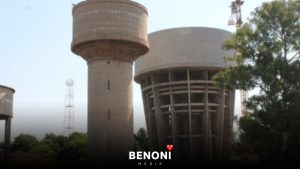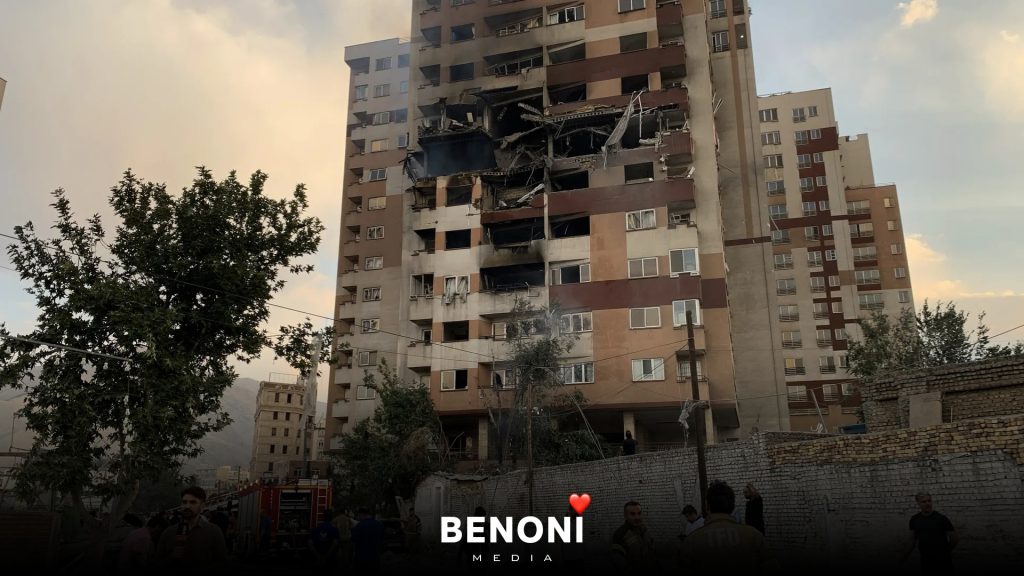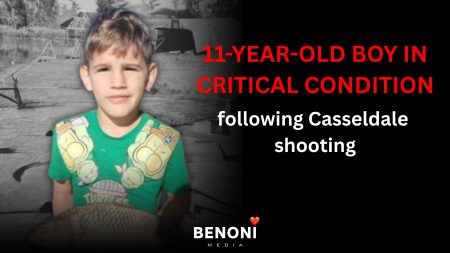An Israeli strike has triggered widespread devastation in Iran, killing top military leaders and targeting key nuclear sites—marking the most significant military escalation between the two nations to date.
Full-Scale Israeli Strike on Iran Confirmed
In the early hours of June 13, 2025, Israel launched a coordinated military operation codenamed Rising Lion, unleashing over 200 fighter jets and firing more than 300 precision-guided munitions on targets deep within Iranian territory.
Israel strikes Iran with submarines and aircraft
— Boi Agent One (@boiagentone) June 13, 2025
Tehran has 🅱️een hit. Sirens across Israel.
Nuclear sites not targeted, as of now.
Israel: "Missile and drone attack expected in immediate future"
Iran: "Remember, we didn't initiate it"
US: "We have no involvement" pic.twitter.com/v1pqbWz05b
This Israeli strike is not a single event but part of a sustained campaign, with Israeli authorities confirming that operations will continue “for as many days as necessary.”
Targets included:
- The Natanz and Fordow nuclear enrichment plants
- Missile production and storage sites
- Command centers of the Islamic Revolutionary Guard Corps (IRGC)
- Residential compounds housing high-ranking Iranian officials
Multiple explosions were also reported in Tehran, including the destruction of key buildings associated with Iran’s nuclear program and military leadership.
High-Profile Casualties
The strike killed Hossein Salami, the commander of the IRGC, along with other top military figures:
- Mohammad Bagheri, Chief of Staff of Iran’s armed forces
- Gholamali Rashid, Deputy Commander of the Iranian military
- Prominent nuclear scientists, including Fereydoun Abbasi-Davani and Mohammad Mehdi Tehranchi
These deaths deal a major blow to Iran’s military leadership and nuclear development program.
Israel Declares Nationwide State of Emergency
Israeli Defense Minister Yoav Gallant and Minister of National Security Itamar Ben-Gvir declared a state of emergency across Israel.
The Israeli Home Front Command has activated emergency protocols:
- Schools closed, and airspace restricted
- Thousands of IDF reservists called up for immediate deployment
- Iron Dome and David’s Sling defense systems placed on high alert
According to Defense Minister Gallant, “This is the beginning of a necessary campaign to dismantle Iran’s nuclear threat and military aggression.”
Iran’s Immediate Military Response
In retaliation, Iran launched over 100 drones toward Israeli territory. Most were intercepted by Israel’s air defenses with U.S. assistance, but a few struck near Haifa and Ashdod, causing minor damage.
Iran’s Supreme Leader, Ayatollah Ali Khamenei, has vowed “a crushing and swift retaliation” and stated that both Israel and its allies “will face consequences beyond their imagination.”
Nuclear Warning:
Reports from Western and Israeli intelligence sources confirm that Iran now has enough highly enriched uranium to assemble up to 15 nuclear warheads within days. While there’s no confirmed nuclear mobilization yet, Israeli leaders say they are “treating the risk as immediate.”
Global Reactions & Trump’s Emergency Meeting
- Former U.S. President Donald Trump convened an emergency cabinet meeting to assess U.S. security and Middle East stability.
UN Security Council is set to hold an emergency session as the international community warns of the potential for full-scale regional war.
Context: Salami’s Military Legacy and Rhetoric
Hossein Salami was not just a commander—he was a symbol of Iran’s defiant posture against the West. Appointed IRGC commander in 2019, he oversaw Iran’s expanding influence through proxies like Hezbollah, Houthi rebels, and militias in Iraq and Syria.
He frequently issued threats against Israel, once vowing to “wipe the Zionist regime off the political map.” His death will likely be seen as both symbolic and strategic.
Strategic Fallout: What’s Next?
This Israeli strike could mark the beginning of a broader military campaign. Experts warn of several possible outcomes:
Scenario | Risk Level |
Iran–Israel war expands to U.S. assets and Arab allies | High |
Iran accelerates nuclear weaponisation | Very High |
Hezbollah and Hamas open second and third fronts | Likely |
Global oil prices and economic markets destabilised | Immediate |
Final Thoughts
With confirmed casualties among Iran’s top military brass, destroyed nuclear facilities, and a raging international response, the Israeli strike represents a defining moment in modern Middle Eastern geopolitics.
As Israel prepares for days of sustained operations and Iran vows retaliation, the world watches anxiously—on the edge of a potential multi-front war that could reshape global security for years to come.








